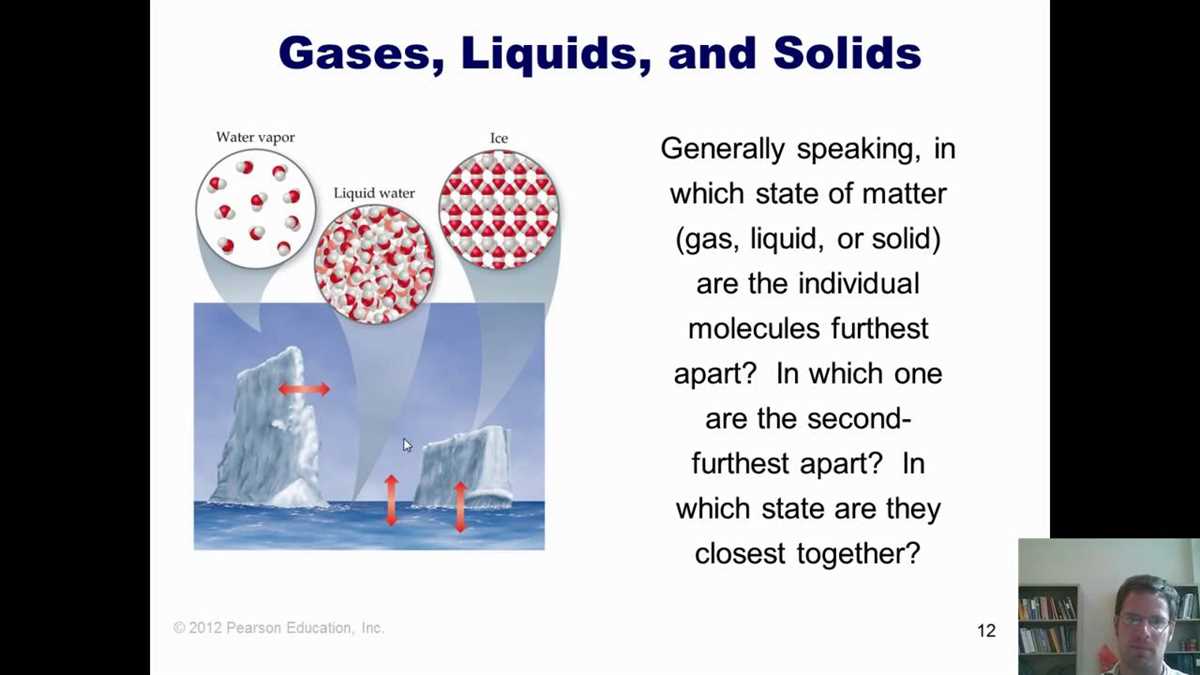
When it comes to understanding and maintaining good health, having access to accurate information is key. Glencoe Health Chapter 4 is dedicated to providing students with a comprehensive assessment of their knowledge and understanding of various health topics. In this article, we will explore some of the key answers and insights offered by Glencoe Health Chapter 4 Assessment.
One of the main focuses of Glencoe Health Chapter 4 is the concept of personal health. The assessment delves into various aspects of personal health, including physical, mental, emotional, and social well-being. Students are encouraged to evaluate their current level of personal health and identify areas for improvement. By addressing each dimension of personal health, students can better understand the importance of a holistic approach to well-being.
In addition to personal health, Glencoe Health Chapter 4 also covers essential topics such as nutrition and physical activity. The assessment provides students with a deeper understanding of the role that proper nutrition and regular exercise play in maintaining overall health. With the answers provided in Glencoe Health Chapter 4 Assessment, students can learn about the benefits of a balanced diet and the importance of engaging in physical activities that cater to their specific needs.
Furthermore, Glencoe Health Chapter 4 also addresses the topic of mental and emotional health. The assessment explores the various factors that can impact mental and emotional well-being, such as stress, anxiety, and relationships. By understanding these factors, students can take proactive steps in managing their mental and emotional health and create a foundation for lasting well-being.
In conclusion, Glencoe Health Chapter 4 Assessment provides students with invaluable answers and insights into personal health, nutrition, physical activity, and mental and emotional well-being. By understanding the concepts discussed in this chapter, students can take control of their health and make informed choices that promote a better quality of life.
Overview of Glencoe Health Chapter 4 Assessment Answers
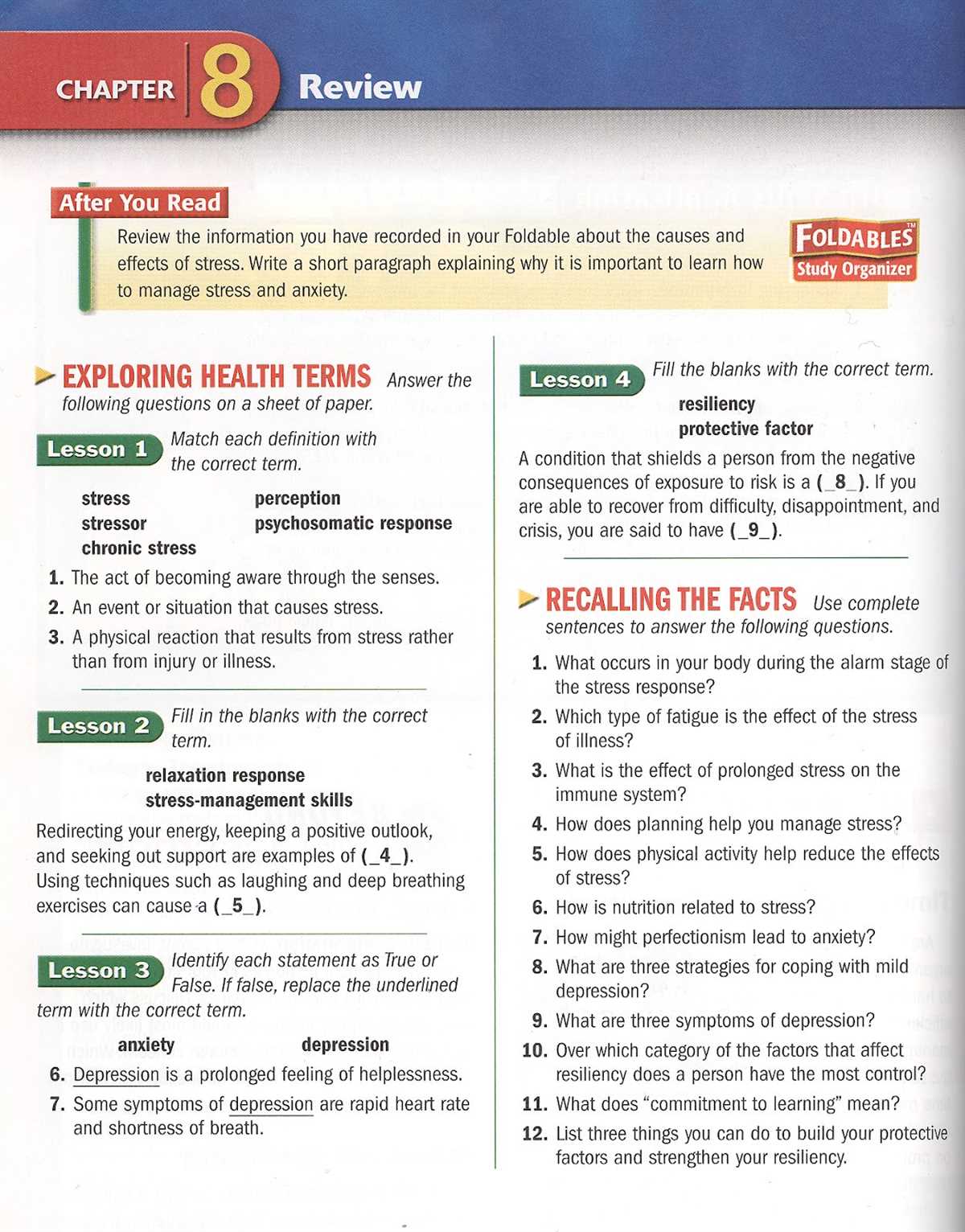
In Glencoe Health Chapter 4, various assessment questions are presented to test the understanding of the material covered in the chapter. These assessment questions cover topics such as stress management, mental and emotional health, and suicide prevention. Through these questions, students are able to demonstrate their knowledge and comprehension of the chapter’s content.
The assessment answers for Chapter 4 of Glencoe Health provide detailed explanations and solutions to the assessment questions. These answers help students to review and reinforce their understanding of the key concepts and information discussed in the chapter. By studying the correct answers, students can identify any areas where they may need further clarification or study.
Key topics covered in the Chapter 4 assessment answers include:
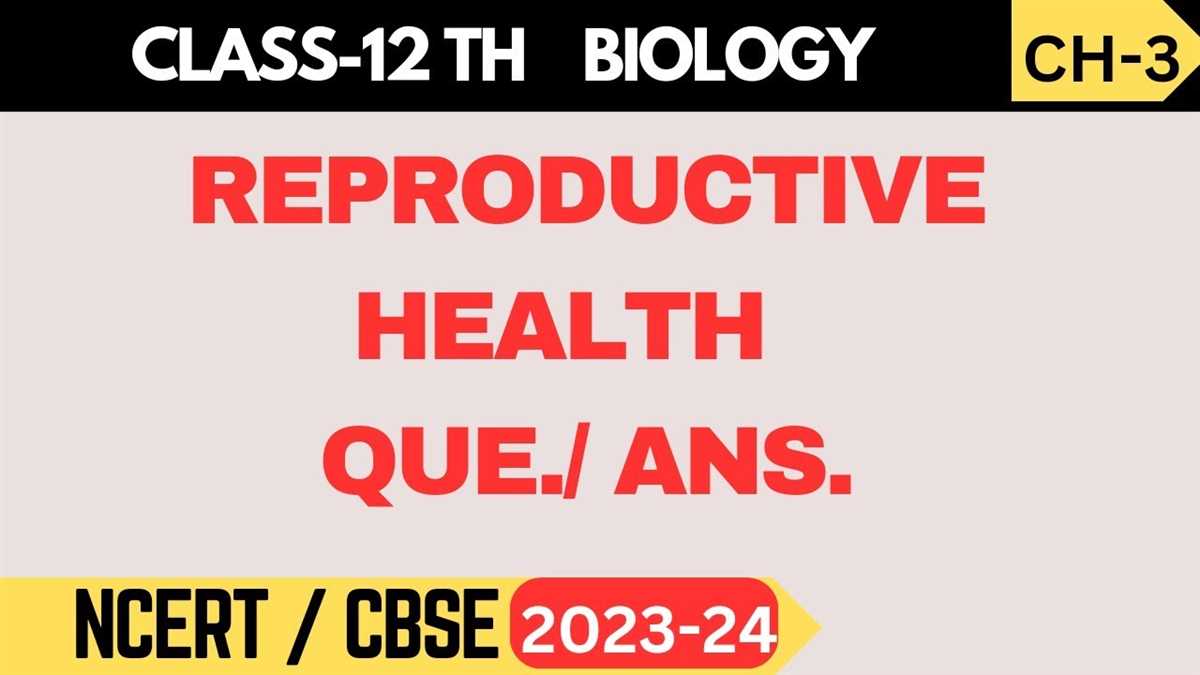
- Recognizing signs and symptoms of stress
- Identifying healthy coping strategies
- Understanding the mind-body connection
- Learning techniques for managing stress
- Recognizing the signs of mental and emotional health disorders
- Understanding the importance of seeking help for mental health issues
- Identifying risk factors and warning signs of suicide
- Learning strategies for suicide prevention
The Chapter 4 assessment answers also provide additional resources and references for further study on the topics discussed. This allows students to delve deeper into specific areas of interest or to seek additional information to expand their knowledge on the subject matter. By utilizing these assessment answers, students can enhance their learning and understanding of the material covered in Glencoe Health Chapter 4.
The importance of understanding chapter 4 in Glencoe Health
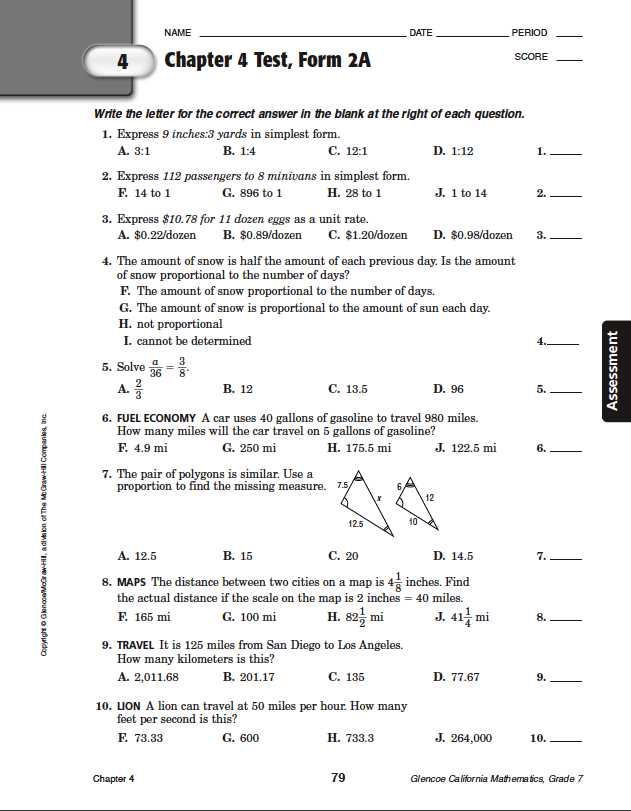
Chapter 4 in Glencoe Health is important because it delves into the topic of mental and emotional health. This chapter provides valuable information and insights into understanding and managing one’s emotions, thoughts, and relationships. By mastering the concepts and principles discussed in this chapter, individuals can enhance their overall well-being and lead more fulfilling lives.
One key aspect covered in chapter 4 is the importance of self-awareness. It explores the idea of recognizing and understanding one’s own emotions and thoughts, as well as the impact they have on one’s behavior. Developing self-awareness helps individuals gain better control over their reactions and make more informed decisions. It also promotes better self-esteem and self-acceptance, which are crucial for mental and emotional well-being.
Another important topic discussed in this chapter is effective communication. Understanding how to express one’s thoughts and emotions in a clear and respectful manner is essential for maintaining healthy relationships with others. Chapter 4 provides strategies for improving communication skills, such as active listening, empathy, and assertiveness. These skills not only strengthen relationships but also contribute to overall mental and emotional wellness.
Furthermore, chapter 4 addresses the significance of managing stress and coping with difficult emotions. It explores various stress management techniques and coping strategies that can help individuals maintain a balanced state of mind. By learning how to effectively manage stress and emotions, individuals can prevent the development of mental health issues such as anxiety and depression.
In summary, chapter 4 in Glencoe Health is vital for understanding and improving mental and emotional health. By gaining knowledge about self-awareness, effective communication, stress management, and coping strategies, individuals can enhance their overall well-being and lead happier and more fulfilling lives.
Understanding the Connection Between Skills for a Healthy Life and Chapter 4 Assessment
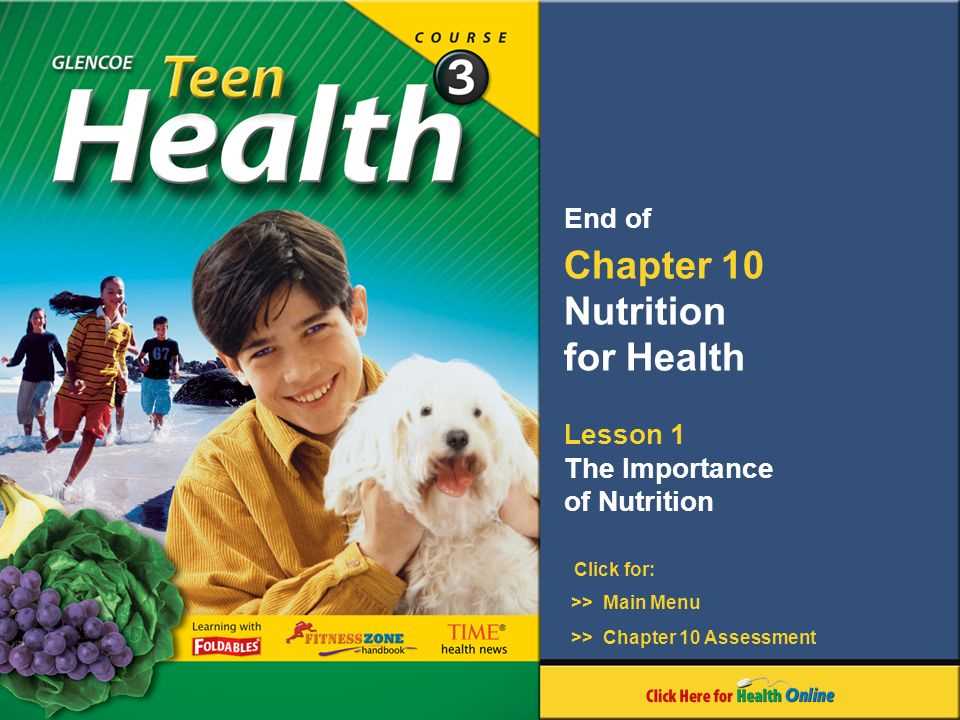
The chapter 4 assessment in Glencoe Health is designed to test the understanding and application of the skills necessary for a healthy life. It serves as a comprehensive review of the topics covered in the chapter, allowing students to demonstrate their knowledge and proficiency in various health-related areas.
Skills for a healthy life, as outlined in the chapter, include decision-making, goal-setting, communication, and advocacy. These skills are essential for individuals to make informed choices about their health and well-being. The assessment provides an opportunity for students to showcase their ability to utilize these skills in real-life scenarios and apply them to promote a healthy lifestyle.
The chapter 4 assessment consists of a variety of question formats, including multiple-choice, true or false, short answer, and essay questions. These different question types assess different aspects of the skills for a healthy life. Multiple-choice questions assess students’ knowledge and understanding of key concepts, while true or false questions test their ability to critically evaluate statements related to health. Short answer questions allow students to demonstrate their ability to provide concise and accurate responses, while essay questions require them to analyze and synthesize information to provide a comprehensive answer.
By successfully completing the chapter 4 assessment, students can gauge their understanding of the material and identify areas where they may need additional review or support. Additionally, the assessment serves as a tool for educators to evaluate student progress and adjust instructional strategies accordingly. It also encourages students to actively engage with the material and apply their skills in a practical context.
- In conclusion, the chapter 4 assessment in Glencoe Health plays a crucial role in reinforcing the connection between skills for a healthy life and the knowledge gained from the chapter. It provides a comprehensive review of the topics covered and allows students to demonstrate their understanding and application of these skills. Through the assessment, students can further develop their skills and knowledge in order to promote a healthy lifestyle.
Exploring the relationship between skills for a healthy life and chapter 4 assessment in Glencoe Health
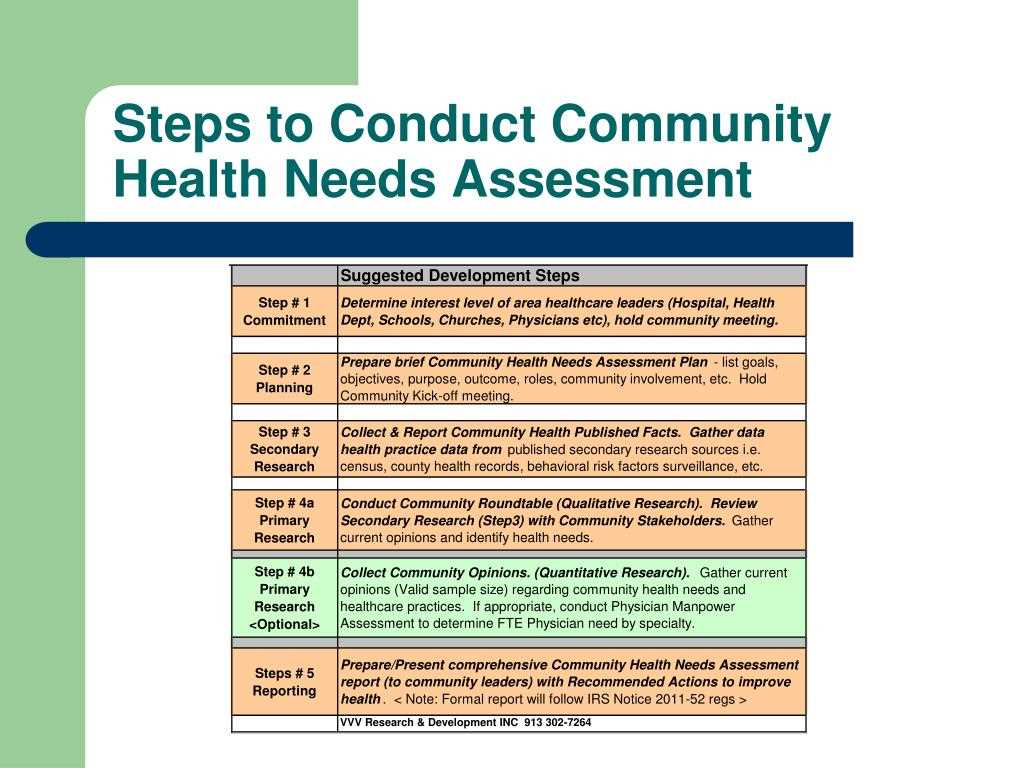
The skills for a healthy life discussed in chapter 4 of Glencoe Health provide a foundation for understanding and promoting overall well-being. This chapter covers essential topics such as stress management, communication skills, decision-making, and conflict resolution. By mastering these skills, individuals can navigate various challenges and maintain a balanced and healthy lifestyle.
The chapter 4 assessment in Glencoe Health assesses students’ understanding of these skills and their ability to apply them in different situations. The assessment includes questions that test the knowledge of stress management techniques, effective communication strategies, and the process of making informed decisions. It also evaluates the ability to resolve conflicts peacefully and handle various interpersonal relationships.
Stress management: The chapter 4 assessment may include questions that require students to identify stressors and propose appropriate coping mechanisms. It tests their knowledge of techniques such as deep breathing, exercise, and time management, which help individuals manage stress effectively and promote mental and physical well-being.
Communication skills: The assessment evaluates students’ understanding of effective communication, including active listening, expressing thoughts clearly, and using assertive communication techniques. Students may be asked to analyze different communication scenarios and identify the most appropriate response in terms of respectful and effective communication.
Decision-making: The chapter 4 assessment may present students with hypothetical situations where they need to make informed decisions. It tests their ability to consider the potential consequences, weigh pros and cons, and make choices that align with their values and goals. This skill is crucial in maintaining a healthy lifestyle and avoiding risky behaviors.
Conflict resolution: The assessment measures students’ understanding of conflict resolution strategies, such as negotiation, compromise, and active listening. It presents scenarios that require students to analyze conflicts, identify underlying issues, and propose resolutions that satisfy all parties involved. This skill fosters positive relationships and helps individuals navigate conflicts in a peaceful and constructive manner.
By understanding and applying the skills for a healthy life discussed in chapter 4, students can develop the necessary tools to lead a balanced and fulfilling life. The assessment in Glencoe Health serves as a way to gauge their understanding and application of these skills, providing valuable feedback and highlighting areas for further growth.
Explanation of Glencoe Health Chapter 4 Assessment Questions
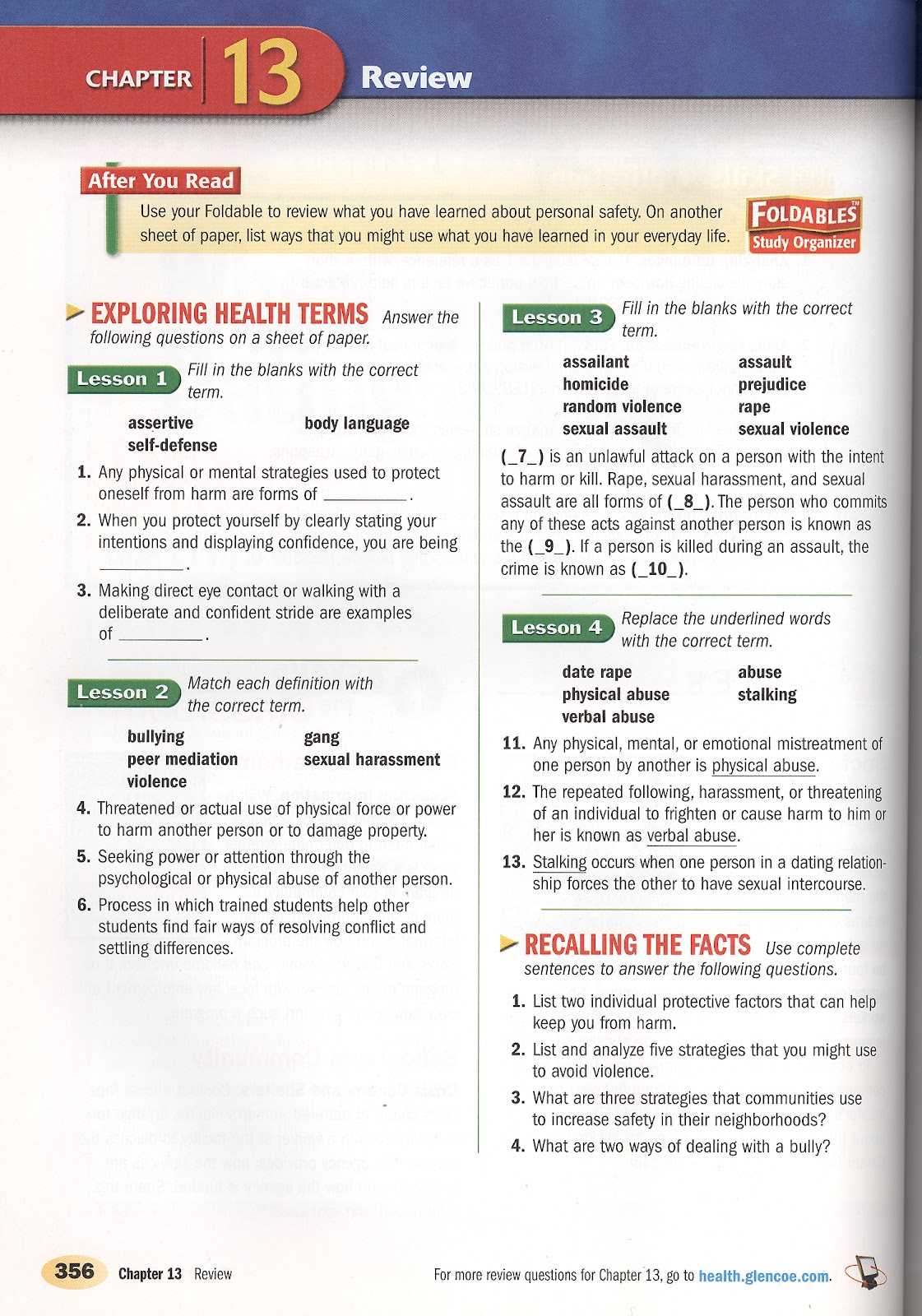
In Chapter 4 of the Glencoe Health textbook, students are assessed on their understanding of various topics related to nutrition and eating disorders. The assessment questions aim to gauge the students’ comprehension of important concepts and their ability to apply that knowledge in real-life scenarios.
Question 1: This question focuses on the different types of nutrients and their functions in the body. Students may be asked to identify the major macronutrients (carbohydrates, proteins, and fats) and explain their role in providing energy and supporting bodily functions.
Question 2: This question tests students’ understanding of the importance of balanced eating and portion control. They may be asked to analyze a food diary and determine if the individual’s diet is well-balanced or if there are any unhealthy habits evident.
Question 3: The third question delves into the topic of eating disorders. Students may be asked to define anorexia nervosa, bulimia nervosa, or binge eating disorder, and explain the signs and symptoms, as well as potential consequences of these disorders.
Question 4: This question explores the concept of body image and its impact on overall health. Students may be asked to discuss the factors that influence body image and how a negative body image can contribute to the development of disordered eating behaviors.
Question 5: The final question focuses on the importance of making informed food choices. Students may be presented with different food labels and asked to interpret the nutritional information to determine the healthfulness of the product.
Overall, the assessment questions in Chapter 4 of Glencoe Health provide a comprehensive evaluation of students’ understanding of nutrition-related topics and their ability to apply that knowledge in real-life situations. By answering these questions, students can demonstrate their grasp of key concepts and develop important skills for maintaining a healthy lifestyle.
An In-Depth Look at the Types of Questions in the Glencoe Health Chapter 4 Assessment
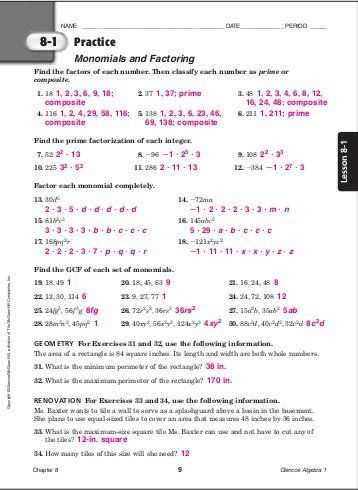
Glencoe Health Chapter 4 Assessment is a comprehensive evaluation tool used to assess students’ understanding of the content covered in the chapter. It consists of various types of questions, including multiple-choice, true or false, fill in the blank, short answer, and essay questions. Each type of question tests different aspects of the students’ knowledge and comprehension.
Multiple-choice questions: This type of question presents the students with several options to choose from, and they must select the correct answer. These questions are designed to test the students’ ability to recall and apply factual information.
True or false questions: In true or false questions, students must determine whether a statement is true or false based on their understanding of the chapter’s content. These questions assess the students’ ability to differentiate between accurate and inaccurate information.
Fill in the blank questions: Fill in the blank questions require students to complete a sentence or phrase by filling in the missing word or words. These questions evaluate the students’ understanding of specific terms, definitions, or concepts discussed in the chapter.
Short answer questions: Short answer questions require students to provide brief and concise responses to specific prompts. It could be asking them to explain a concept, provide examples, or analyze a scenario. These questions test the students’ ability to articulate their understanding and apply it to real-world scenarios.
Essay questions: Essay questions are open-ended and require students to provide a detailed and comprehensive response to a prompt. They often require students to analyze and evaluate concepts, provide evidence and examples, and demonstrate critical thinking skills. These questions assess the students’ ability to synthesize information and present their thoughts in a coherent manner.
By including a variety of question types in the Glencoe Health Chapter 4 Assessment, students are challenged to demonstrate their understanding of the content in different ways. This allows for a more comprehensive evaluation of their knowledge and helps to ensure a well-rounded understanding of the chapter’s topics.